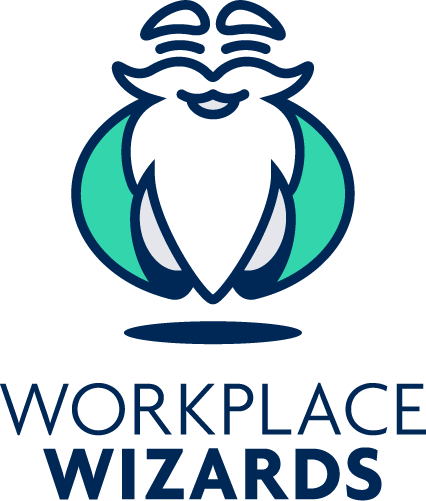Want to seize control of your employment arrangements? Unfamiliar with concepts such as good faith bargaining, compulsory arbitration and the “Better Off Overall” test? With new significant civil penalties contained in the Fair Work Act 2009 (Cth) (Fair Work Act), it pays not to risk ‘going it alone’ within enterprise bargaining.
What is an Enterprise Bargaining Agreement (EBA)?
Enterprise bargaining is the negotiation process between management, employees and their bargaining representatives (say, a trade union official) with the goal of striking terms for an enterprise agreement (EBA).
An EBA is a document registered with the federal employment tribunal setting out the terms and conditions of employment between a group of employees and their employer.
The Fair Work Act establishes a set of clear rules and obligations about how the bargaining process should occur, including rules about bargaining (including the conduct of those negotiating the deal), the EBA content which must (and must not) be included, and how an agreement is made and approved.
How long does it take to negotiate an EBA?
Under the Fair Work Act, there are a number of steps an employer must follow to get an enterprise bargaining agreement from initiation to completion. The average enterprise bargaining process is about 8 – 10 meetings from ‘cradle to grave’, and takes at least 2-3 months.
Planning for success means doing the work ‘up front’ so that an employer’s management team are prepared for an efficient, productive and focused EBA negotiation. Some structured and organised planning will save managers countless hours and tens of thousands of dollars during the negotiation itself.
What are the steps in negotiating an EBA?
There are usually 12‐steps involved in getting an agreement to assessment and approval stage:
1. Initiating bargaining
- Bargaining for the agreement needs to be formally initiated/ agreed to – known as “notification time”.
2. Giving “notice of employee representational rights” to employees
- Within 14 days of the notification time, an employer must take all reasonable steps to give notice to employees through a “Notice of Employee Representational Rights” (“NERR”). Specific requirements for the NERR are listed in the FW Act and include, for example, informing employees of their right to be represented by a bargaining representative during the negotiations.
3. Determining who the bargaining agents will be
- The relevant trade union will likely be the ‘default’ bargaining agent for employers unless other bargaining agents are identified. There are strict requirements in the FW Act about a party not being able to refuse to recognise or bargain with another bargaining agent.
4. Striking a deal
- This crucial step involves the parties sitting down at the bargaining table, trading ideas and reaching an in-principle deal. Once done, if these ideas can be codified into agreement terms then the parties can process to the next step
5. Keeping employees informed
- Throughout the negotiation, employers are required to give ongoing access to a copy of the proposed agreement and other material incorporated by reference into the agreement (i.e. policies or procedures or the underlying modern award) to employees throughout the process and prior to them voting on the EBA.
6. Explaining key terms
- Key terms must be explained to “vulnerable employees” such as employees from culturally and linguistically diverse backgrounds, young employees and/or employees who do not have a bargaining representative for the agreement. This includes taking reasonable steps to ensure that the terms of the agreement, and the effect of those terms, are explained. The explanation needs to provided in an “appropriate manner” for each group of vulnerable employees (such as in multiple languages, or in both verbal and written form).
7. Reaching agreement
- An employer must be able to demonstrate employees “genuinely agree” to the agreement they are being asked to approve (vote up).
8. Requesting a vote
- The employer can request employees to vote under the agreement (but must ensure it is seven days or more after providing the agreement, and 21 days or more after providing the NERR to employees).
9. Getting a majority vote in favour of the proposed agreement
- If an employer has requested a vote by employees on the proposed agreement, if a majority of the employees who vote (not a majority of the employees who are covered by the enterprise agreement) cast a vote to approve the agreement, the vote is successful! Single enterprise agreements are considered to be “made” from this step and no damaging industrial action (such as strikes or work bans) are possible from now.
10. Applying for Fair Work Commission (FWC) approval
- Within 14 days of the agreement being “made”, a bargaining representative can then apply to the FWC for approval of the agreement, attaching a signed copy of the agreement and relevant declarations and signatures.
11. FWC approval
- Before the FWC will approve an agreement, it must be satisfied of various requirements, including:
- the agreement contains the applicable “mandatory terms” (such as a flexibility term allowing for individual flexibility arrangements and a consultation term);
- the agreement deals only with “permitted matters”;
- the agreement does not contain “unlawful content” (such as discriminatory clauses, or clauses dealing with unfair dismissal rights, right of entry rights and conditions or OH&S rights other than those in accordance with State laws);
- the agreement passes the “Better Off Overall Test” (“BOOT”) in that each employee is better off overall by entering into the agreement versus the underlying Award; and
- the terms of the agreement do not contravene the National Employment Standards (“NES”) contained in the FW Act.
12. Agreement commences
- An enterprise agreement will come into operation seven days after the FWC approves it (or if a later date if specified in the agreement, from that date).
Need further help?
Workplace Wizards provides expert workplace relations, human resources consulting, industrial relations, Workplace Health and Safety and workers’ compensation advice and support on-demand and tailored to your business needs.
We offer a complete range of employee management, workplace relations services and workplace training services. For specialist assistance during your entire enterprise agreement bargaining process, contact us at Workplace Wizards support@workplacewizards.com.au or 03 9087 6949



0 Comments Leave a comment